Posts in Category: Pet Health & Wellness
Posts in Category: Pet Health & Wellness
Endoscopy for Diagnosis of Gastrointestinal Disorders in Pets
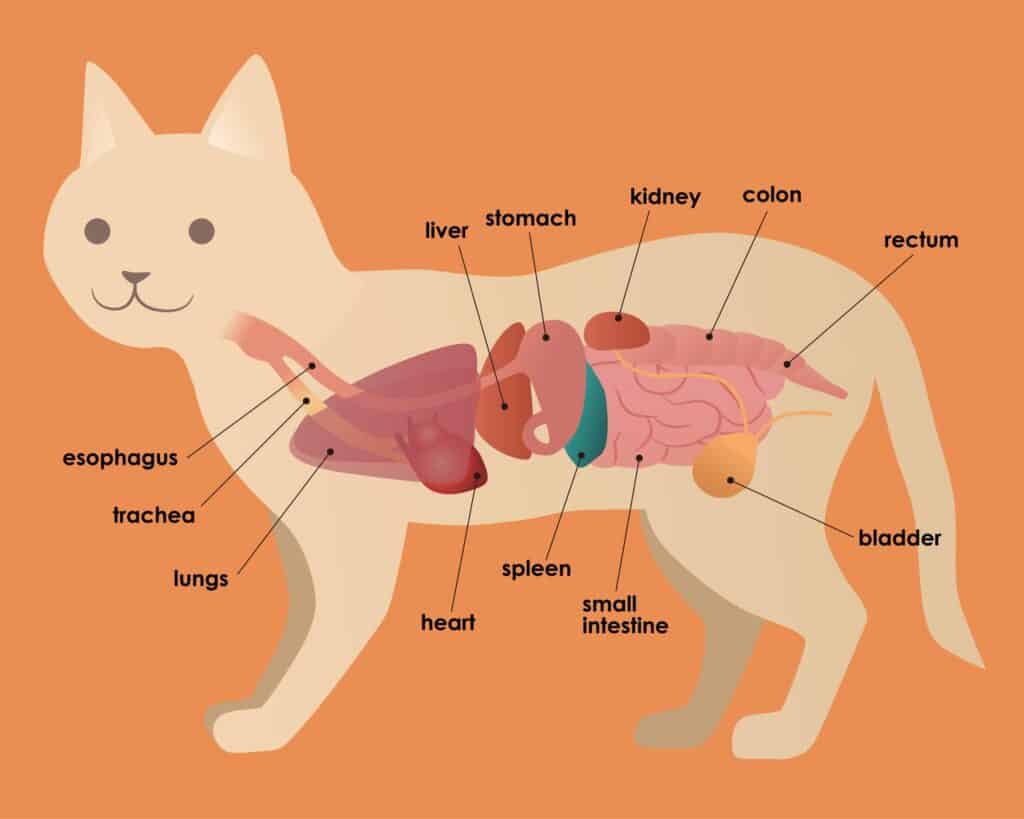
Medicine is an ever-changing science, with new options emerging all the time. Not only are new discoveries happening, but new surgical techniques are also being developed. In particular, endoscopy has allowed us to do more than ever with less invasive methods for our patients. Parkside Animal Hospital is happy to be able to offer this technology to better care for the pets that depend on us.
Continue…Detection and Diagnosis of Foreign Body Ingestion in Dogs and Cats
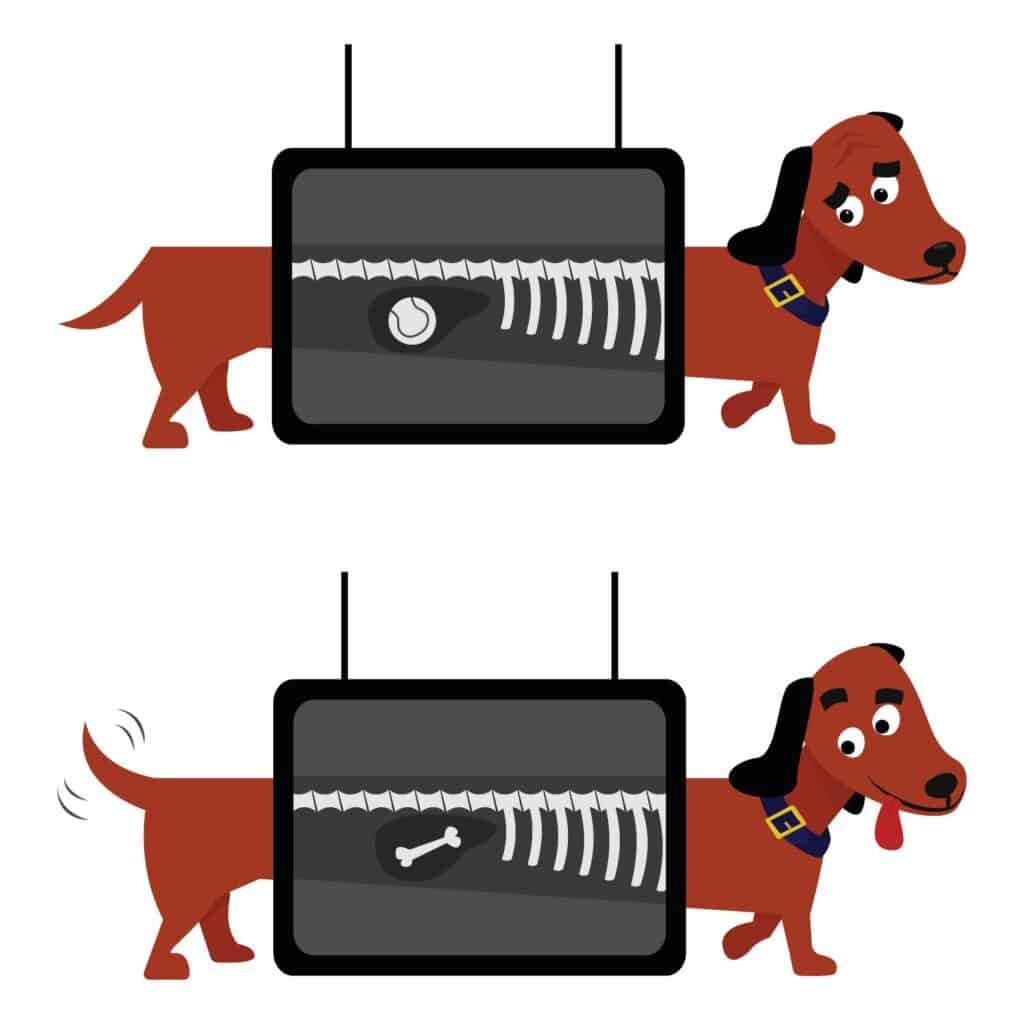
The ingestion of a foreign body is a common complaint among veterinary patients. After all, pets learn about their world through their senses, and they just like to eat in spite of flavor or the potential for danger.
A foreign body is something inside the body that’s not supposed to be there. The risk of moving certain objects through the gastrointestinal tract is incredibly high, and some items simply get stuck where they don’t belong. Luckily, veterinary diagnostics techniques and even surgery can save the day.
Continue…What Is Canine Parvovirus: Symptoms, Treatment, and Prevention
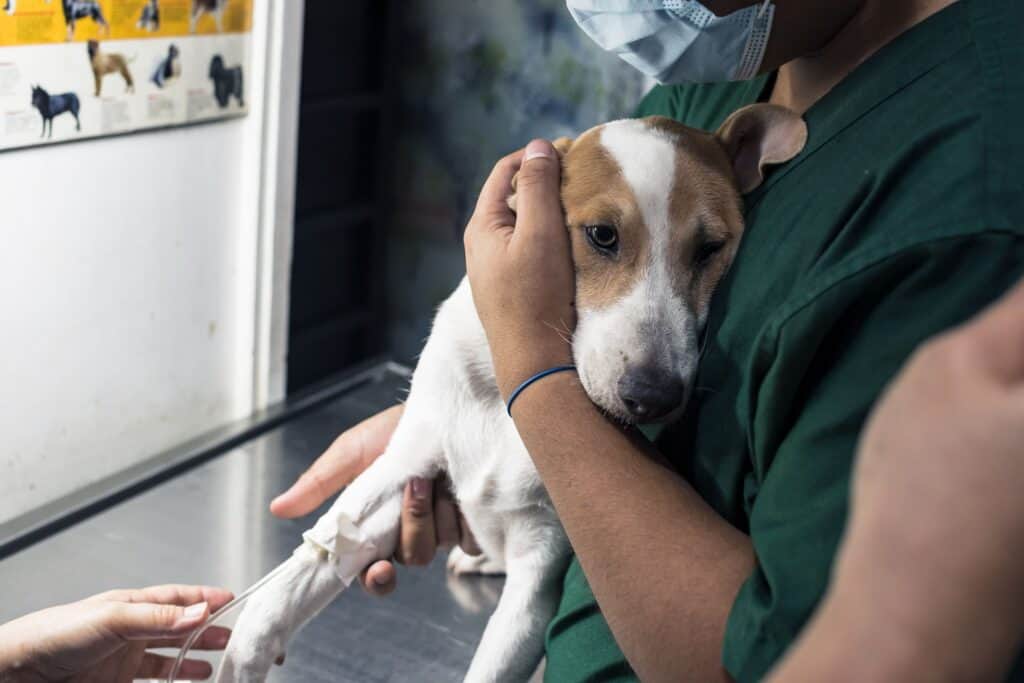
There are several canine vaccinations that are vitally important for disease prevention. While we customize every patient’s care, we always recommend the canine parvovirus vaccination.
One of the most common diseases in dogs, parvovirus, can be effectively prevented throughout a dog’s life with routine boosters.
Continue…Understanding Environmental Allergies in Pets Living in North Bay, Ontario

Our pets can suffer from seasonal allergies, too. Since allergy outlooks are typically high in spring and summer, pets can be exposed to various allergens that make for an uncomfortable time. By the time the leaves start changing, allergy season has reached its apex. So how do yu help your pets overcome their symptoms? Keep reading to find out.
Continue…Reasons Why Your Dog or Cat Needs An Endoscopy
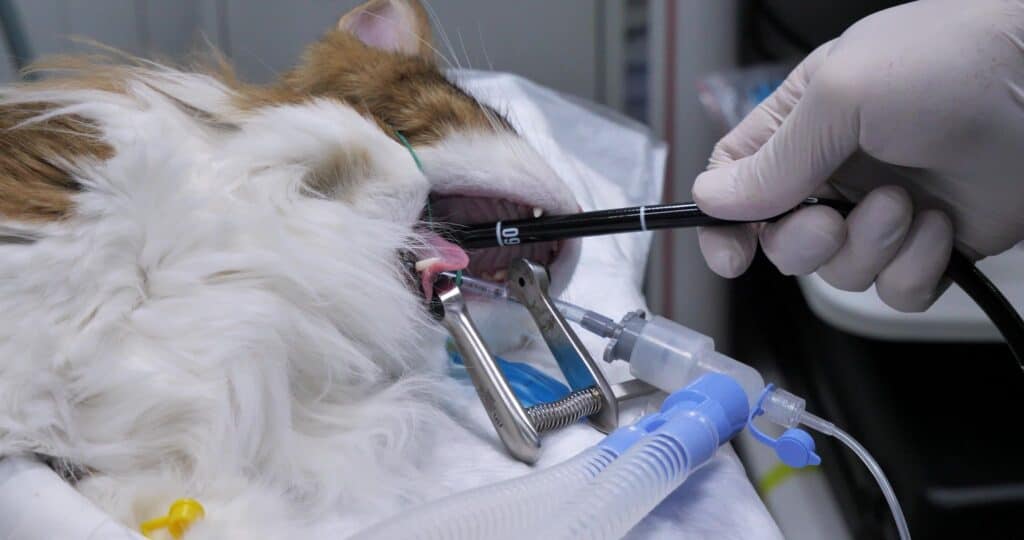
If your veterinarian has scheduled an endoscopy, you might be wondering what it is or why your pet needs one. What does the procedure look for? How can it help your pup or kitty? The team at Parkside Animal Hospital has performed many endoscopies. We’d like to share the reasons why your veterinarian might recommend an endoscopy for your dog or cat.
Continue…Improve Your Pet’s Well-Being with Non-Invasive Laser Therapy
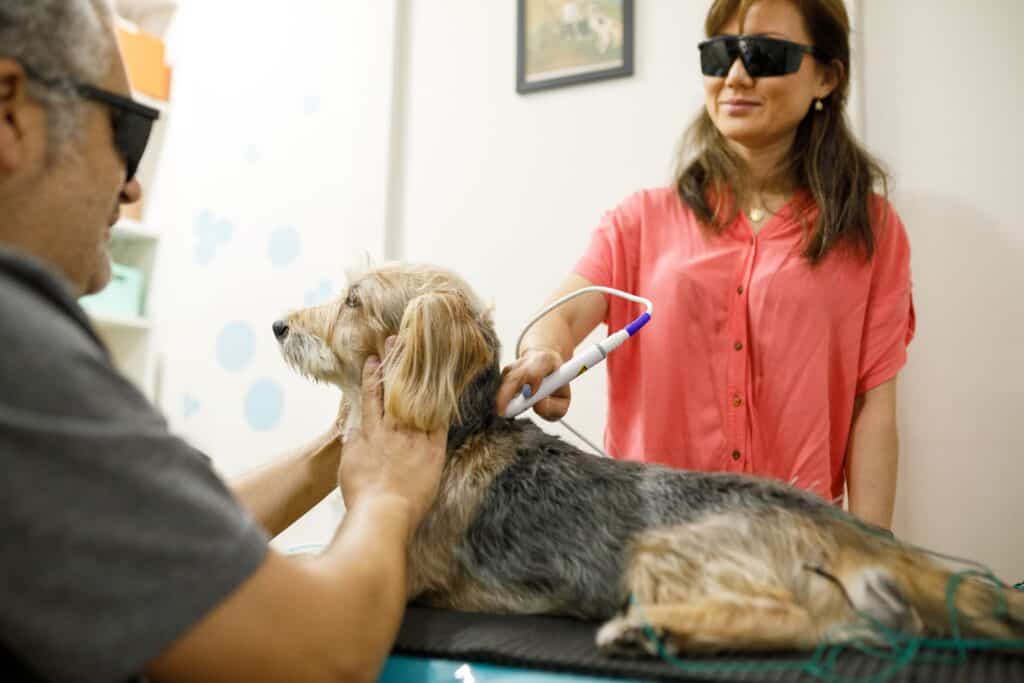
If there was a safe, non-invasive way to help your pet feel better and heal faster, wouldn’t you want to know about it? Parkside Animal Hospital wants to share a little secret with you—it exists! Laser therapy for pets is gaining traction in the veterinary world, and we have the information you need to know to make an informed decision for your pet.
Continue…Laparoscopic Surgery: What It Is, How It Benefits Pets
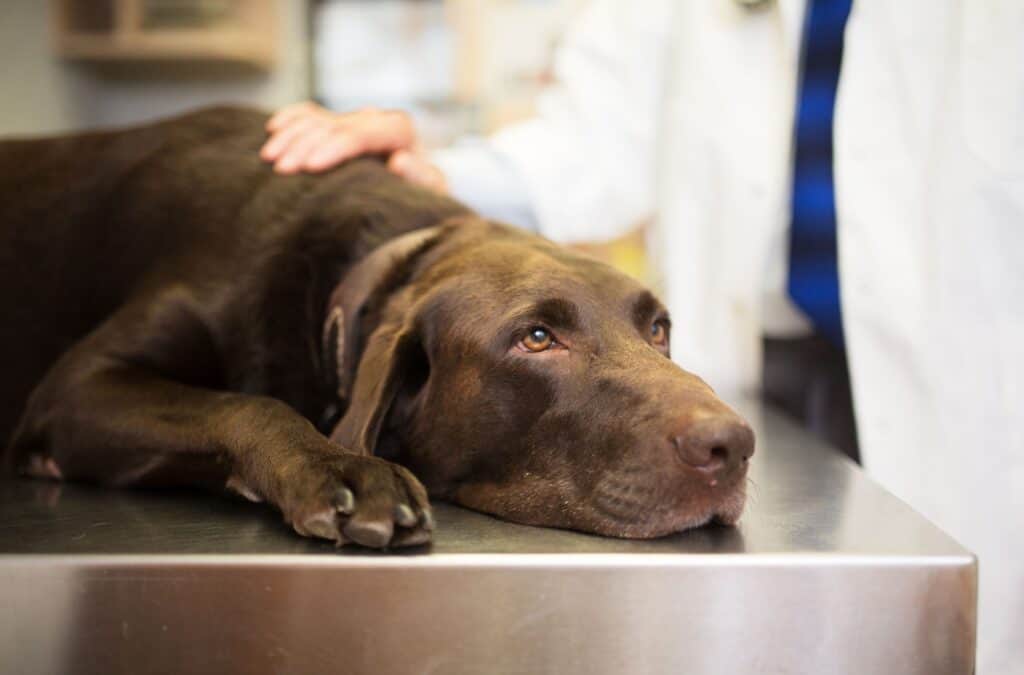
Pet surgery techniques have grown increasingly more sophisticated, and today, some veterinarians offer the option of laparoscopic surgery for certain cat and dog procedures. We’re proud to offer this minimally-invasive technique at Parkside Animal Hospital, and we’ve put together some information to help you learn more about laparoscopic surgery and its advantages for your pet.
Continue…Pet Dental Health Is More Than Clean Teeth
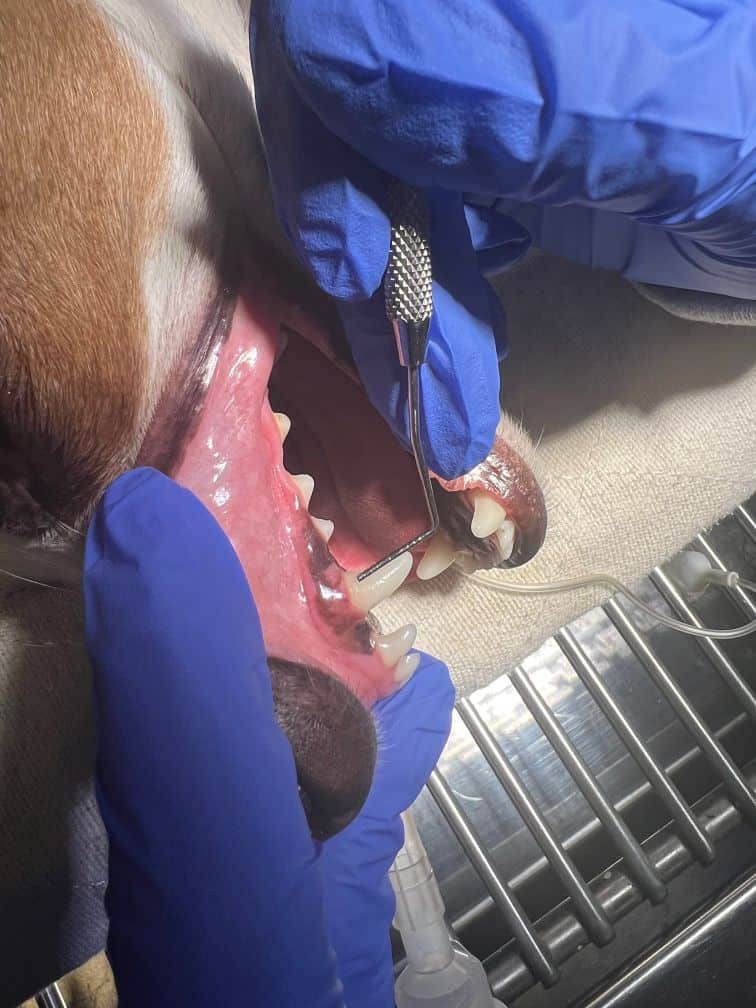
Responsible pet ownership is no small achievement. Every single day, there are dozens of choices that either support a pet’s health and well-being or fall short of meeting their needs. Of all the things owners can do to care for their pets, including providing the best food, exercise, and bonding experiences, taking care of their teeth and gums is a hugely important choice. This task not only keeps their mouth free of bacteria, plaque, and tartar, but prioritizing pet dental health could add years to their life!
Continue…A Close Look at the Cost and Benefit of Dog Dental Treats
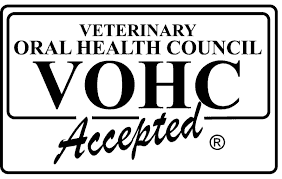
A treat is just a treat unless, that is, it’s working to lift unhealthy plaque off the surface of the teeth. Then it’s more like medicine, although your dog doesn’t need to know that. While many dental chews are worth the money, not all dog dental treats provide the same health benefits. We’ll help you decide if dog dental treats are something to consider, or whether they’re not worth all the hype.
Continue…Help! I Think My Pet Was Exposed to Rabies
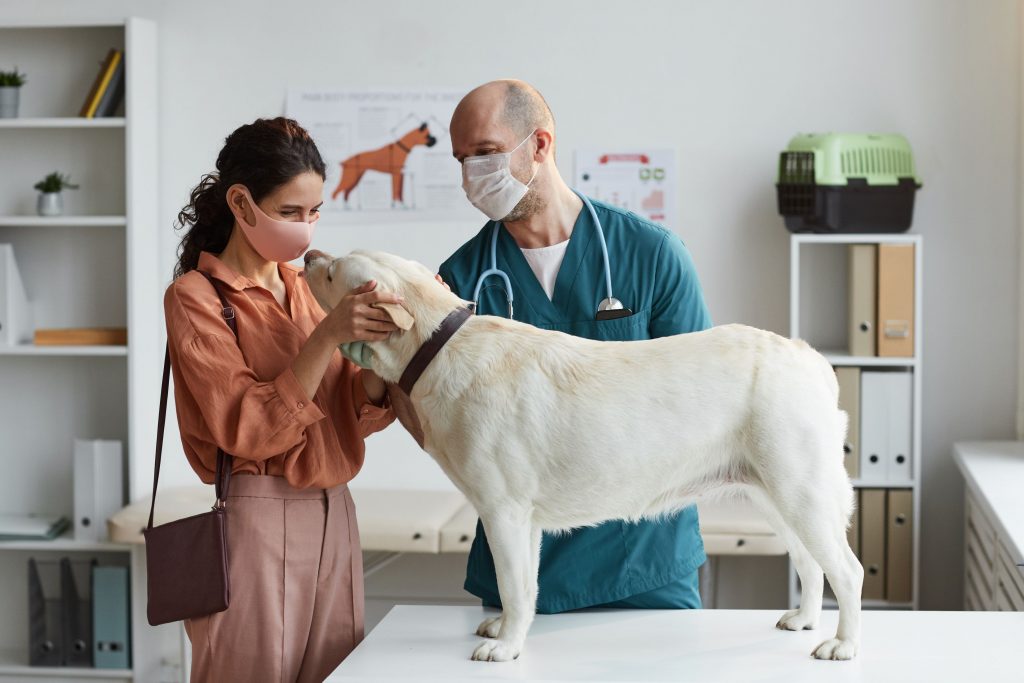
Ontario law requires all dogs and cats be immunized against rabies starting around 14 weeks of age, with re-vaccination at one year old. Boosters are scheduled annually or every three years, depending on the vaccine and local regulations. This goes a long way toward protecting our companion animals from this dreaded disease, but rabies is far from eradicated. Whether your pet gets into a scuffle with wildlife or another pet, it’s critical to proceed as if your pet was exposed to rabies.
Continue…